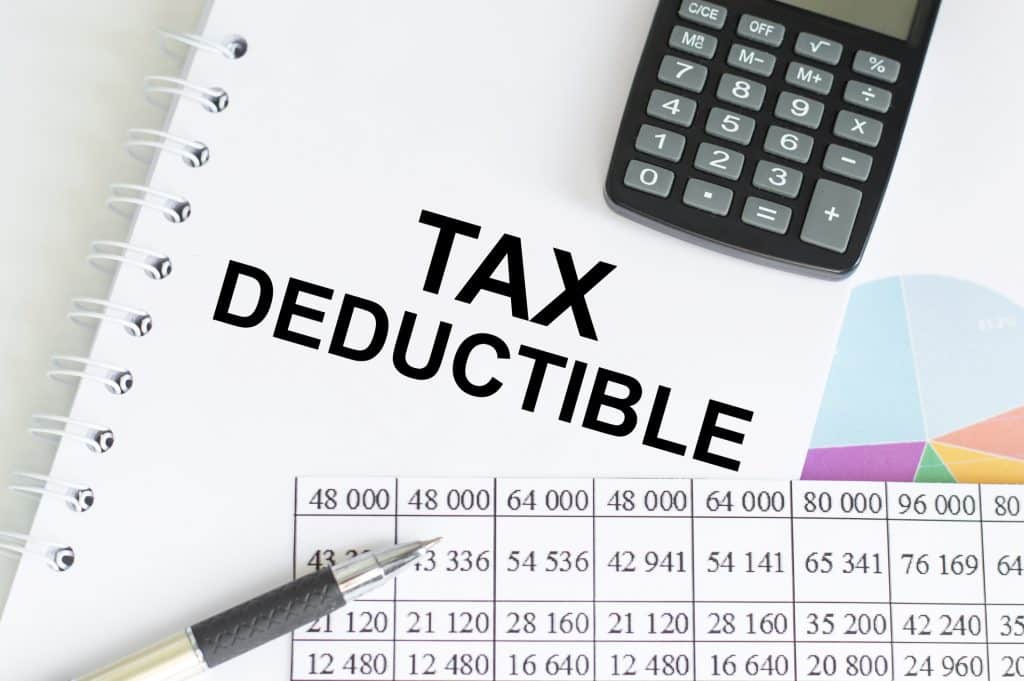Important Tax Deductions for the Self-Employed:Maximize your tax savings with insights on eligible expenses and financial strategies for freelancers.
Navigating the world of taxes as a self-employed individual can be complex, but understanding the available deductions is crucial for maximizing savings. This comprehensive guide aims to demystify the realm of tax deductions, providing self-employed individuals with insights into key deductions that can contribute to financial efficiency and compliance with tax regulations.
Self-Employment Tax Landscape: An Overview: Before exploring specific deductions, it’s essential to grasp the self-employment tax landscape. This section provides an overview of how self-employed individuals are taxed and the unique considerations they face compared to traditional employees.
Self-employed individuals are responsible for both the employer and employee portions of certain taxes, making it imperative to leverage available deductions to offset tax liabilities.
Common Business Expenses: Maximizing Deductions
Home Office Expenses: Delve into the details of claiming home office expenses, a significant deduction for self-employed individuals. This section outlines eligibility criteria, calculation methods, and best practices for maximizing this deduction.
Home office expenses can include a portion of rent, utilities, and maintenance costs. Understanding the rules for claiming these expenses is crucial for optimizing deductions and reducing taxable income.
Vehicle Expenses: Explore the deductibility of vehicle expenses for self-employed individuals. This section provides insights into methods for calculating deductions related to business-related vehicle use.
Self-employed individuals who use a vehicle for business purposes may be eligible to claim vehicle expenses. Understanding the available methods for calculation is essential for maximizing this deduction.
Business Supplies and Equipment: Understand the deductibility of business supplies and equipment expenses. This section provides guidance on claiming deductions for items essential to the operation of the business.
From office supplies to specialized equipment, self-employed individuals can deduct the costs of items necessary for conducting business. Keeping thorough records is key to substantiating these deductions.
Professional Services and Fees Deductions
Professional Fees: Learn about the deductibility of professional fees paid by self-employed individuals. This section provides insights into claiming deductions for services provided by professionals such as accountants or consultants.
Self-employed individuals often engage the services of professionals to support their business activities. Deducting fees paid for these services helps offset business expenses.
Marketing and Advertising Costs: Explore the deductibility of marketing and advertising expenses for self-employed individuals. This section outlines eligible expenses and strategies for maximizing deductions in this category.
Investing in marketing and advertising is essential for many self-employed individuals. Understanding the deductibility of these costs ensures that the financial impact is mitigated through tax savings.
Educational and Training Expenses Deductions
Professional Development Costs: Understand the deductibility of educational and training expenses for self-employed individuals. This section provides insights into claiming deductions for activities that enhance professional skills.
Self-employed individuals can often deduct expenses related to professional development, including workshops, courses, and conferences. Staying informed about the eligibility criteria is crucial for maximizing these deductions.
Subscription Costs: Explore the deductibility of subscription costs for publications and services relevant to the business. This section provides guidance on claiming deductions for ongoing subscriptions.
Subscriptions to industry publications, software, or other relevant services can be deductible for self-employed individuals. Keeping track of these expenses ensures that deductions are maximized.
Insurance and Retirement Deductions
Health Insurance Premiums: Learn about the deductibility of health insurance premiums for self-employed individuals. This section provides insights into claiming deductions for medical insurance coverage.
Self-employed individuals can often deduct the cost of health insurance premiums, including medical, dental, and long-term care coverage. Understanding the rules for this deduction is crucial for optimizing tax savings.
Retirement Contributions: Explore the deductibility of contributions to retirement plans for self-employed individuals. This section outlines available options and considerations for maximizing deductions in this category.
Contributions to retirement plans, such as Simplified Employee Pension (SEP) IRAs or Solo 401(k)s, can be deductible for self-employed individuals. Planning for retirement while maximizing tax savings is a strategic financial move.
Travel and Meal Deductions

Business Travel Expenses: Understand the deductibility of business travel expenses for self-employed individuals. This section provides insights into claiming deductions for travel-related costs.
Self-employed individuals who travel for business purposes can deduct expenses such as transportation, accommodation, and meals. Keeping detailed records is essential for substantiating these deductions.
Meal Expenses: Explore the deductibility of meal expenses for self-employed individuals. This section provides guidance on claiming deductions for meals related to business activities.
Meals that are directly associated with the active conduct of a trade or business can be deductible. Understanding the criteria for deductibility helps self-employed individuals maximize this tax benefit.
Recordkeeping and Documentation Best Practices
Importance of Recordkeeping: Delve into the significance of meticulous recordkeeping for self-employed individuals. This section provides tips and best practices for maintaining organized records.
Thorough recordkeeping is essential for substantiating deductions and ensuring compliance with tax regulations. Implementing effective recordkeeping practices is key to navigating tax season with ease.
Digital Tools for Recordkeeping: Explore the digital tools available to self-employed individuals for recordkeeping purposes. This section recommends platforms and applications that can streamline the process.
In the digital age, self-employed individuals have access to various online tools that can simplify recordkeeping. Leveraging technology enhances efficiency and accuracy in maintaining financial records.
Tax Planning Strategies for Self-Employed Individuals
Quarterly Estimated Tax Payments: Learn about the importance of making quarterly estimated tax payments as a self-employed individual. This section provides insights into how proactive tax planning can prevent financial strain.
Unlike traditional employees, self-employed individuals don’t have taxes withheld from their income throughout the year. Making quarterly estimated tax payments helps distribute the tax burden and avoids a large payment at tax time.
Engaging Professional Assistance: Understand the benefits of seeking professional assistance for tax planning. This section highlights how tax professionals can provide personalized guidance and strategic advice.
Engaging the services of a tax professional can offer numerous benefits, from ensuring compliance with tax laws to identifying additional deductions. Professional advice contributes to financial well-being and peace of mind.
Conclusion: Important Tax Deductions for the Self-Employed
As we conclude this comprehensive guide on important tax deductions for the self-employed, it’s evident that a strategic approach to deductions can significantly impact the financial landscape of self-employed individuals. From common business expenses to professional fees and educational costs, understanding the breadth of deductible expenses is crucial for optimizing tax savings.
Remember, staying informed about tax laws, maintaining meticulous records, and leveraging available deductions are essential components of effective tax planning. By adopting proactive tax strategies, self-employed individuals can not only reduce their tax liabilities but also contribute to the overall financial success of their businesses.
In the dynamic and evolving landscape of self-employment, ongoing education and a proactive mindset are key to navigating the complexities of taxation. As you embark on your journey as a self-employed individual, consider consulting with tax professionals to ensure that you’re maximizing your deductions and making informed financial decisions.

